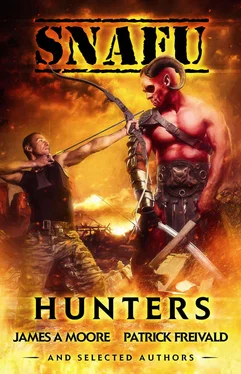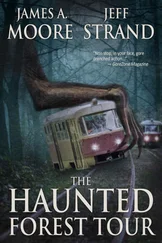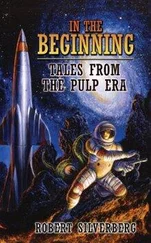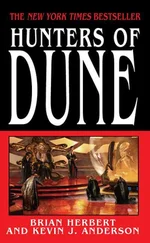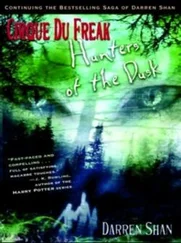This time of year the days were very short, a blue twilight only lasting about four hours. The golden sun did not come up until late morning and struggled to rise just above the horizon before setting again by mid-afternoon.
At one point the team heard a long wail far in the distance. The shrill cry resembled nothing uttered by human or animal. They heard it again from time to time, coming from different directions. The soldiers exchanged anxious, knowing looks.
“Ghouls,” Kravchenko muttered.
Zakharov raised his hand to signal a halt. He glanced around at the trees. One nearly fifty meters tall towered above the rest. Handing his binoculars to Okhchen, he said, “Get up there and see if you can locate them.”
Okhchen strapped spikes to his boots and shinnied up the trunk until he could reach the lowest branches, then climbed up through the boughs. Sitting in a crook near the top, he slowly scanned in all directions before quickly clambering back down.
“Comrade Lieutenant, twelve are two kilometers northeast moving down the trail towards us,” he said. “Ten more are a kilometer and a half southwest, following us and coming fast. The second group is probably the pack that attacked the hamlet. They must have discovered our tracks.”
“They’re hunting us now,” said Zakharov. He rubbed his chin thoughtfully. “We could dig in and summon the other teams.”
Kravchenko shook his head. “It’ll be dark before anyone can get here. We’re too far apart. Then the ghouls will have the advantage since they can see at night.”
“Then we’d better attack now while it’s still daylight and the packs are separated. Eliminate the ones behind us then destroy the rest.”
Kravchenko grinned, revealing a gold eye tooth. “We’ll catch them by surprise.”
The team wheeled about and cantered back the way they had come. Soon the horses neighed. They had a keen sense of smell and ghouls exuded a disagreeable odor.
Swerving behind a rise, the soldiers dismounted. Three held the horses. Okhchen and Kaminsky crawled up to the crest to over-watch positions while the others, led by Zakharov, spread out in a skirmish line in front of the rise.
Ten ghouls ran through the woods ahead.
They were thin, wiry creatures with gray, leathery skin totally devoid of hair. Running in a forward crouch like apes, each would stand a little over meter and a half tall if fully erect. Long, bony arms almost reaching the ground ended in gnarled hands with curved, black claws. Bipedal, they had clawed, three-toed feet. Narrow heads had pointed ears, slits for nostrils, and slanted yellow eyes smoldering with ravenous hunger. They bared slavering fangs and long, blue, forked tongues flicked out.
Even weak daylight impaired their vision so they did not see the soldiers immediately.
A yellow flare was sent up to alert the other teams that ghouls had been spotted. Then the echoing crack of Okhchen’s rifle broke the silence. A ghoul staggered as a 147-grain 7.62 millimeter bullet punched through its left eye, blasting out the back of its head in a spray of black ichor. It toppled backwards.
The other ghouls looked around angrily for the source as a second and then a third were killed in rapid succession by headshots, until finally they spotted the humans. With a bedlam of bloodcurdling howls, they charged. One threw back its head and let out a long, wavering shriek that echoed across the forest and sent chills up the spines of the soldiers.
“Fire!” shouted Zakharov.
The ghouls were fast and agile. The soldiers stood their ground and opened fire – the quick, harsh chatter of their submachine guns punctuated by the slower rattle of the DP-28 above and behind them.
The creatures rushed into a storm of lead. They stumbled and fell, riddled by scores of slugs, their ichor sizzling as it splashed on the ground, instantly melting any snow it touched. A pair veered left, trying to outflank the team, but to no avail. This move had been anticipated and they too were shot down, the last collapsing dead just meters from the soldiers.
The team ceased fire and reloaded, adrenalin slowly ebbing from their veins. Zakharov noticed Kravchenko calmly bandaging a wrist.
“Wounded?” he asked.
“A drop of their blood splashed on me,” said Kravchenko. “Burns like acid.”
The ghoul carcasses began smoldering and disintegrating. Within minutes all that would remain would be heaps of ashes and a foul reek lingering in the crisp air. No bones. And nothing would ever grow in these spots again. This accelerated decomposition had made it impossible to obtain specimens for scientific study, so details of ghoul anatomy were unknown.
Zakharov collected a little bit of the ash, sealing it in an envelope. He had standing orders to take samples when conditions permitted.
Attempts to capture ghouls alive had proved unsuccessful. They could not be subdued and were totally resistant to tranquilizers. All anyone had to go on were eyewitness accounts, blurry photographs, plaster casts of footprints, and laboratory analysis of ash residue. Ghouls did not appear to have any type of social structure or leadership. Nothing resembling offspring were ever seen and their method of reproduction was unknown. They all looked alike and there was no visible gender differentiation.
The team hurried back to their horses and rode off to intercept the other pack.
The woods thickened, forcing them to slow as they followed tracks down a slope to a frozen, meandering stream cloaked in shadow, the treetops etched against the orange sky.
Okhchen abruptly reined in and motioned for the others to stop. His eyes darted around suspiciously.
The breeze shifted. The horses whinnied sharply.
“Ambush!” shouted Okhchen.
Screeches filled the air as ghouls suddenly leaped from behind the rocks and scrub brush on the opposite bank where they had been hiding.
One private was decapitated by a single slash of a claw and his headless body, spurting bright-red blood, rode along for a ways like a horrid rag doll before finally tumbling from the saddle. Another was dragged off his mount; his submachine gun and arm were torn away and the top of his head was sheared off. The neighing horse of a third man reared and hurled him to the ground, breaking his leg. A ghoul immediately disemboweled him and bit his throat out.
One sprang into a tree above Zakharov, but before it could pounce on him he peppered it with a burst from his PPSh-41. Several branches broke as the ghoul fell heavily to the ground.
The soldiers recovered quickly from their initial surprise and urged their steeds forward. They managed to ride clear of the ambush and then swung around to open a relentless fire from horseback. The pack was quickly eliminated.
Zakharov jumped down and rushed over to his fallen men along with the team’s medic.
Two were already dead. The third, the one missing an arm and the top of his skull, was incredibly, horribly, still alive and conscious. With the usual stoicism of Russian soldiers he did not cry out. But he was beyond aid and there was nothing the medic could do except administer morphine to ease his last moments, cradling him in his arms until he mercifully expired.
Zakharov had a green flare fired to signal that all the ghouls seen had been destroyed. Then he grimly collected the identification booklets of his slain men for safekeeping. The bodies were stripped of weapons and equipment and loose stones were piled over each to erect a crude cairn. The iron-hard permafrost made grave digging a herculean task they had no time for. They paused for a somber moment of silence, then mounted up and rode on, taking the extra horses with them.
Because of the classified nature of these operations the government did not award a campaign medal for participation. Zakharov would not even be allowed to write consolation letters to the families. He could recommend deserving men for posthumous decorations, but the citations would themselves be classified. Relatives would never be told the circumstances of their loved ones’ deaths, only that each had died “fighting gallantly in defense of his beloved Motherland.”
Читать дальше
